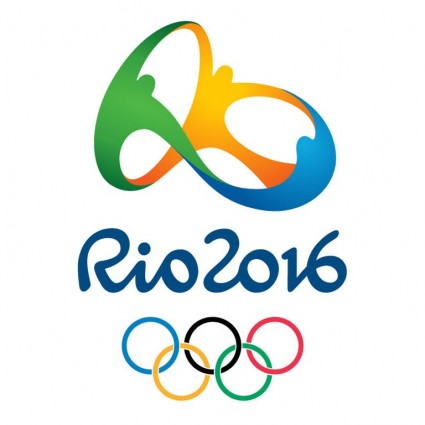 In a very strange evening. Michael Phelps said goodbye to the Games that have given him so much, his friend Ryan Lochte a dressed as a police officer put a gun to his head to give him a good scare. There has never been, perhaps, a more striking farewell from the swimming Games, or perhaps a more spectacular entry into action for the sport that takes the relay to overcome its appeal, athletics.
In a very strange evening. Michael Phelps said goodbye to the Games that have given him so much, his friend Ryan Lochte a dressed as a police officer put a gun to his head to give him a good scare. There has never been, perhaps, a more striking farewell from the swimming Games, or perhaps a more spectacular entry into action for the sport that takes the relay to overcome its appeal, athletics.
In a hot August night in Rio, not a wisp of breeze to calm the atmosphere, the football field in the neighborhood of Engenhao where the athletics is held without a bad flame to enlighten finally reached the dignity to allow in denomination as Olympic Stadium in the future.
In just half an hour, in the blue track an unexpected world record was being erased, a mark that was believed eternal, and also third consecutive victory for Usain Bolt. With Wayde van Niekerk and the Jamaican athlete, Rio enters a new dimension, a twilight zone where 60,000 spectators applauded greatness live.
The 24-year old, Van Niekerk, ran the 400m in 43,03s, as close to the 43s unimaginable border while leaving almost in complete ridicule the 43,18s on another very hot night, this one in Seville in 1999, when Michael Johnson embodied the record for posterity. It is the second world record in athletics overtaken in Rio in just three days. On Friday, the Ethiopian Almaz Ayana, broke the 10,000m world record.
“When Bolt retires, Van Niekerk will take his place,” said Michael Johnson from the BBC, without seeming at all affected by the loss of his great record. eight years ago in Beijing, Bolt already stripped his record in the 200m. Contrasting these numbers, the hobby wonders in what distance would Bolt and Van Niekerk cross, the only athlete in history that has dropped from the 10s in the 100m, the 200m in 20s and 44s in the 400m. Maybe a 300m, a distance without official pedigree, is the answer. In the 400m, in the last two events that the three have joined, the Games in Beijing and Rio, Van Niekerk has defeated Kirani James, London Olympic champion and LaShawn Merritt the gold in Beijing.
In his slowest race Bolt was still the fastest. The Jamaican did just enough to overtake Gatlin, who had escaped in the shot, and defeated him with 9,81s, the worst mark of all his great triumphs. If Gatlin had gone faster than his 9,89s final, Bolt also, surely, would have improved his brand. To close the week for Bolt what he is missing, above all, to win back the 200m, his favorite distance. The series starts on Tuesday and the final is on Thursday.
Bolt warned anyone that thinks he can not outrun his mark. “I’m in better shape than last year,” he said before suggesting with a mischievous smile that perhaps on Thursday in the final of the 200m we can expect a surprise. The Jamaican has never hidden that his great vital goal is to go below the 19s in the 200m. His current record is 19,19s. Which is already incredible.
Before leaving the way open to the gods of speed, the most admired in the stadium, Colombian Caterine Ibarguen and Yulimar Rojas, Venezuelan fought a very contested battle for the Caribbean supremacy in the triple jump. The veteran, who walks like a model with a big smile and jumps like a wild beast prevailed, and gave Colombia its first ever Olympic gold in athletics. Rojas pushed, only to force out the best of Ibarguen, and revealed that her ability can not have limits.
In the Sambadrome, in the burning Rio midday, one athlete from Kenya won the marathon, a story that had never occurred. Galician Alessandra Aguilar faded halfway through the track and had to be evacuated in an ambulance and stuck after more than an hour in an inevitable jam.
With 15 gold medals already, the UK was placed second in the medals table after Sunday when two of their most renowned professional athletes, golfer Justin Rose and tennis player Andy Murray, who finished with the fable of Del Potro, added two golds more. In gymnastics, 120 years old, sterile, added two more with Max Whitlock on floor and pommel horse.







